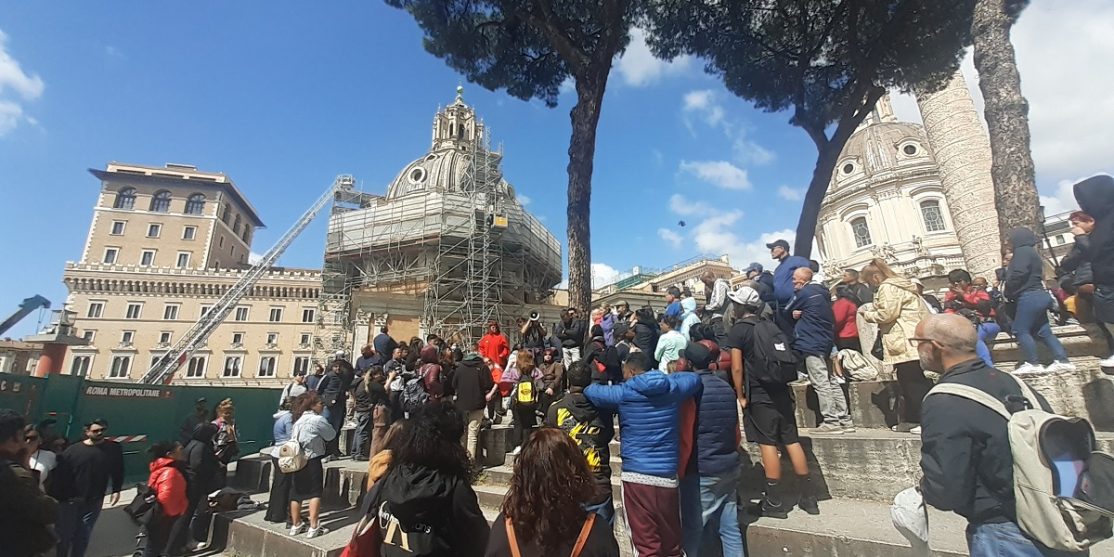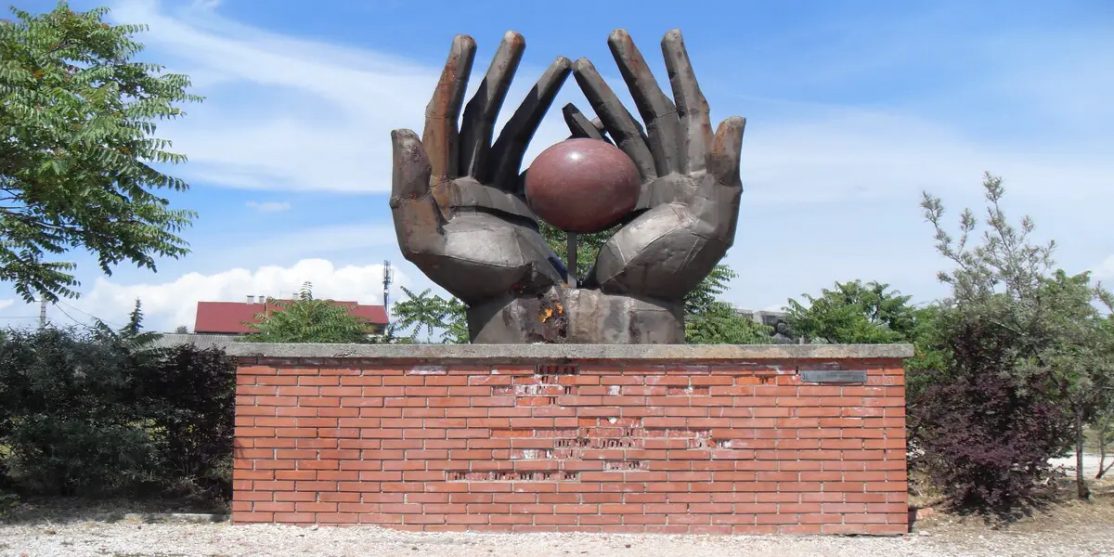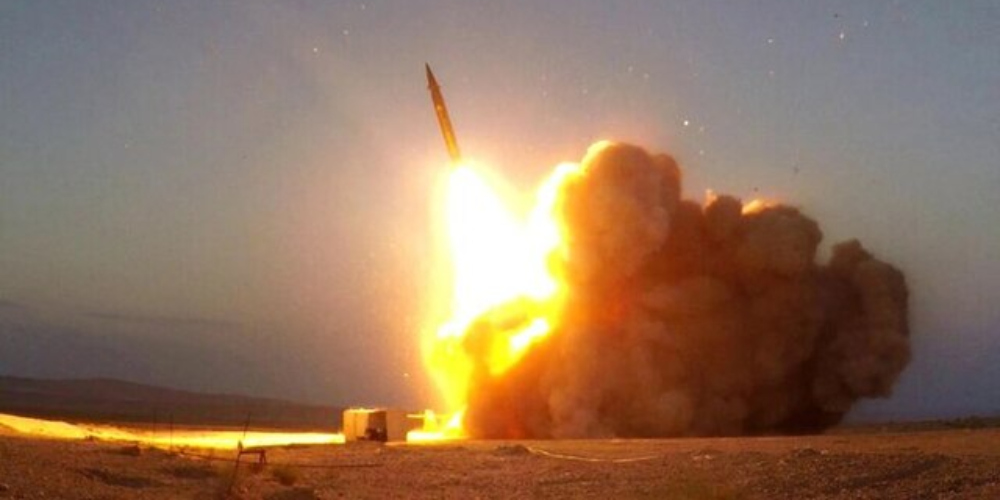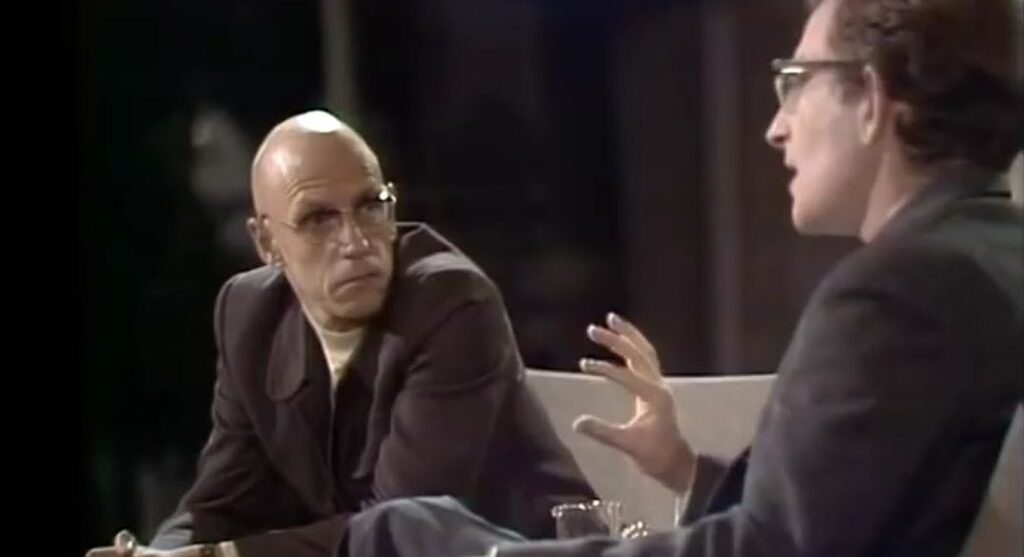MONDO
Brasil. In defense of democracy and freedom
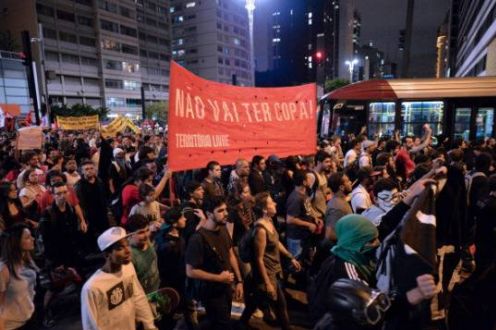
A pochi giorni dall’inizio del Mondiale in Brasile, mentre continuano le rivolte e le manifestazioni nelle strade, pubblichiamo l’appello multilingue in difesa della democrazia e della libertà, contro le speculazioni e le violenze poliziesche.
The proximity of the World Cup and elections brings the prospect of intensification of street demonstrations and mobilizations, launched in June 2013 throughout the country. Since then, a kind of “pedagogy of revolt” developed, which stimulated the poor, excluded and marginalized, to increasingly resist the misruling that came from the “blind spots” of Brazilian democracy, in an effort to make it more real. This is also the case for protests against state violence in the suburbs, as well as the “rolezinhos” and other diversified forms of mobilization and expression.
At the moment we are particularly concerned with the deepening of the repressive response to the protests by the powers that be. This response is reflected in the misguided attempt to deliverto the police, and possibly to the Armed Forces, the mediation of what could be an opportunity for dialogue with the streets and “peripheries,” as trials and ongoing preparations have showed. They have expressed a new and vigorous thirst for freedom, equality, and justice that the state, in all levels, responds to in a repeatedly and unreasonably repressive mode. The legislative measures of judicial organization and the expansion of the use of the regime of exception to “guarantee law and order,” confirms this unfortunate and pernicious trend.
Of great concern is the presidential and congressional desire to advance in defining new crimes and strengthening punishment, clearly targeting demonstrations: the threat of restriction of the right to strike, creation of “ad hoc” centers to catch protests in the act, the expansion of anti-protest forces, and trivialization of imprisonment without trial. This all evokes and suggests the return of the 50-year-old authoritarian rubbish of the military dictatorship, inspired by the dreadful doctrine and crystallized in the hideous national security laws.
We do not intend to carry into the future the burden of omission in the light of what is happening in slums and occupations, if there is no greater wisdom and balance from the authorities. We believe that the people’s uprisings have brought many positive contributions to democracy and the common good. Mistaken and unfair decisions by public authorities were (at least partially and temporarily) reviewed, and public spaces have been preserved. The public attention was attracted to essential topics such as the transportation model, education and health services, the system of political representation, the displacement of the poor population, police brutality, and the racial and social apartheid. Without the demonstrations, the dead of Favela da Maré would barely be remembered. And the Case Amarildo may not have reached the outcome and the ramifications it has. Without the demonstrations, free media would not have spread. Commercial, corporate and government media would not have been compelled to cover the protests and rectify some of their versions of episodes of violence.
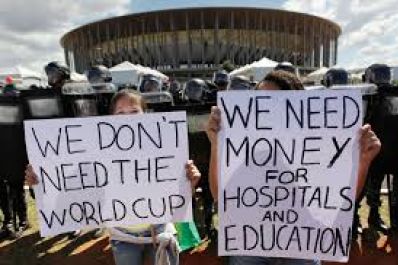
A promising aspect of the positive cycle of demonstrations and protests, essential for us, is the major and occasional leading role played by a new generation of citizens, a young, generous, creative and combative crowd, sensitive to social ills, supportive and willing to devote themselves to the defense of common rights and freedom. The youth in revolt are promoting a powerful critical action on the established state, city, justice, security, and development models. In the vast majority of times, they achieve this with good humor and irreverence, beauty and creativity, and respect for life and autonomy. For the first time, protesters hold their own posters. We think it is the desire for change and improvement that the protests are expressing in reference to the World Cup. It is not about being “against Brazil,” against soccer and joy, but rather against authoritarian, technocratic and socially unjust ways that are imposed by the association between FIFA, the state and the great “national” and multinational groups. The latter harms the sport itself and prevents people’s access to the stadiums.
We condemn, as abhorrent, all excesses of violence repeatedly committed by military police against the protesters and against the general population. We consider the widespread police tendency to harass or intimidate anyone who opposes the acts of brutality, or makes them visible, unacceptable, including free media activists, lawyers and volunteer rescuers. We consider the indiscriminate arrest of demonstrators for simply wearing masks or costumes, or being present in a place of confrontation that they did not cause, unacceptable. We consider the dissolution, and removal by force, and without a lawful court order, of peaceful occupations in public spaces and other forms of exercising freedom of assembly, of movement and expression, unacceptable. We consider the indiscriminate use of weapons, including the so-called “non-lethal” (in truth just “less lethal”, as they can maim and impair), unacceptable. We believe that guns cannot replace the duty of listening and dialogue, which should be respectfully met by agents of the order.
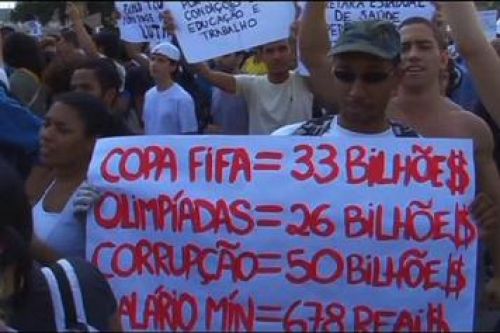
We support the freedom of thought, expression, critique, movement, reunion, assembly, and expression. We support the rights to physical and psychological integrity of all in demonstrations. We advocate for demilitarization and retraining of the security forces, based on respect for human rights of citizens in general, including the poor and protesters. We advocate restraint and accountability of unjustifiable acts of police violence, especially against those who are physically or socially vulnerable. We advocate good employment of public matter and its proper management in the interest of the common. We defend the right to truthful information. We advocate respect from the powers that be to constituent actions of citizens in the streets.
We affirm that this crowd of young and poor have the sacred right to dream of a city, a state, a country, and a better world for all of us, and to fight for those dreams properly. We invite everyone to read, and to consider with serenity and autonomy, the points of reflection presented here, inspired by a debate among a few dozen friends and people who share a basic commitment to freedom and democracy. This is a non-corporate and non-partisan initiative, although people linked to professional and corporate parties may sign. Those who share this perspective can also subscribe to it, sending with their signature their name and form, by which they want to be identified.
With the hope that tolerance, respect, serenity, balance, and enlightenment prevail, instead of their opposite, we fraternally greet all and everyone.
Rio de Janeiro, May 1st, 2014.

